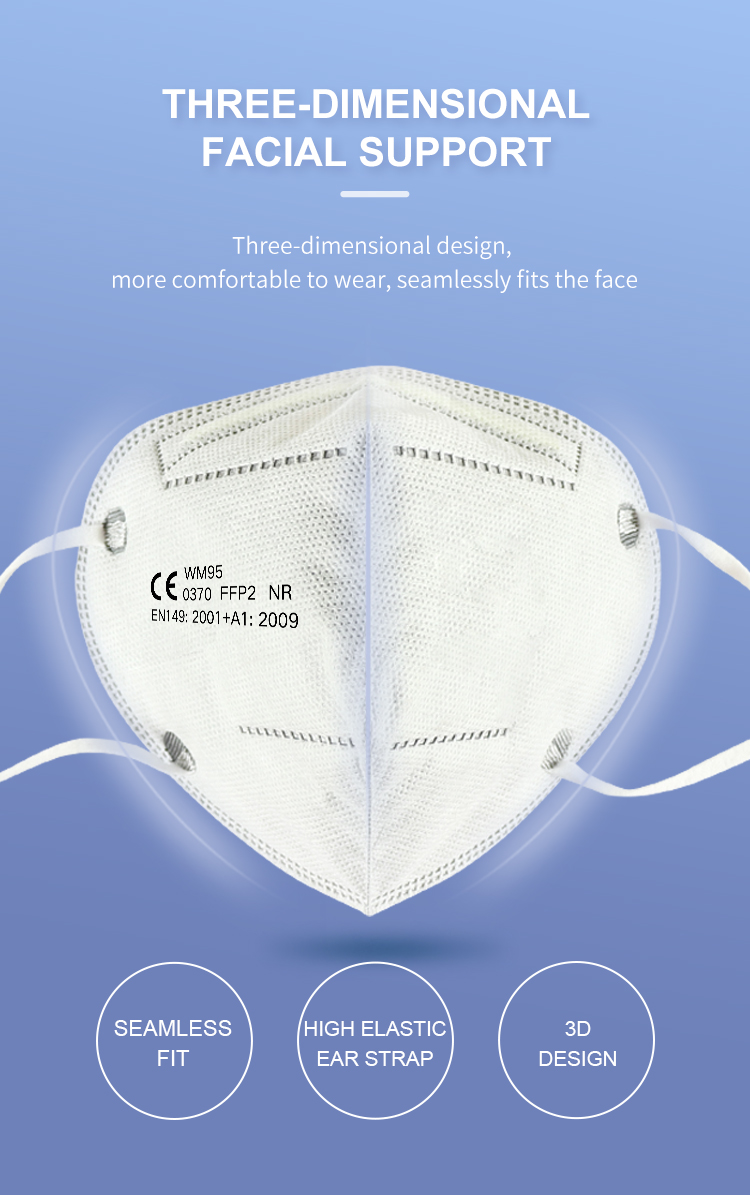Wearing a high-quality mask that fits well and has good filtration helps to protect you from breathing in viruses, wildfire smoke, and other particles or germs in the air.
Respirators, such as N95s, KN95s, or KF94s, are the best type of masks. They offer more protection because they generally have better fit and filtration. Other masks such as surgical masks and cloth face coverings, tend to be looser and not as protective as respirator masks. N95, KF94 and KN95 respirators can be purchased at drugstores, hardware supply stores, and online. Single Strip Clip Cap

Mask wearing may be an especially good precaution for anyone who is at higher risk for getting very sick from respiratory illnesses, has a history of breathing/lung issues, or has environmental exposures.
Masks lower a person’s exposure to respiratory infections such as COVID 19 , influenza , respiratory syncytial virus (RSV) and pertussis (whooping cough).
If you test positive for COVID-19 , masking for 10 days is recommended. See COVID-19 isolation guidance for more details.
If you believe you were exposed and will be in contact with someone who is higher risk, consider wearing a high-quality mask.
If you are at higher-risk of becoming severely ill , consider wearing a high-quality mask (respirator) when you are in an indoor public setting with poor ventilation, or when you are traveling on public transportation .
People who are at higher risk for severe respiratory infections include:
Older adults (aged 50 years and older)
People with certain medical conditions such as a chronic disease or cancer
People with weakened immune systems
People who are pregnant or were recently pregnant
People who live in congregate care facilities, such as a skilled nursing facility
Children under 5, with greatest risk in infants
KN95s and KF94s are respirators that meet international standards. They provide good protection, but less protection than N95s. Most KN95s and KF94s have ear loops, which may provide a less-snug fit than respirators with head straps such as N95s.
If you choose to use a KN95 or KF94, use one that has been tested by NIOSH and has a minimum "filtration efficiency" of 95% or higher. While these respirators have been tested by NIOSH, they are not designed and approved according to NIOSH standards.
Surgical masks include various types of loose-fitting disposable masks. These masks can block large droplets but don ’ t fit close to the face. Even when worn tightly against your face, surgical masks provide much less protection than a well-fitting respirator.
Cloth masks are less protective than surgical masks or high-quality respirators.
Check for any gaps by cupping your hands around the outside edges of the mask. Make sure no air is flowing from the area near your eyes or from the sides of the mask. If the mask has a good fit, you will feel warm air come through the front of the mask and may be able to see the mask material move in and out with each breath.
Change your mask as needed . Do not wear a dirty mask. Throw away disposable masks or respirators that become wet or dirty.
Masks can be worn safely by children 2 years of age and older. There are rare exceptions. Children under age 2 should not wear a mask. Choose a mask for your child that has the best protection, best fit , and one your child will wear.
Masks should fit over the nose and under the chin with no gaps around the edges. They should not prevent your child from seeing. KN95s and KF94s are both available in “child” or “extra-small” sizes. N95s in size “small” may fit older children but may not fit younger or smaller children. There are no NIOSH-approved N95 masks for children at this time.
Any person who chooses to wear a mask cannot be excluded from participating in an activity or entering a venue or business (including schools or childcare) unless wearing a mask would pose a safety hazard.
This information is intended for a general audience. Some workplaces (PDF), local health departments, and Cal/OSHA may have additional recommendations or requirements for wearing a mask.
COVID-19 Hospital Admission Levels (CDC)
People with Certain Medical Conditions (CDC)
COVID-19 Prevention - Non-Emergency Regulation What Employers Need to Know Executive Summary (PDF)
Guidance for Face Coverings as Source Control in Healthcare Settings
CDPH Call Center: 1-833-4CA4ALL (1-833-422-4255)

Single Strip Clip Cap For General Public Information: (916) 558-1784